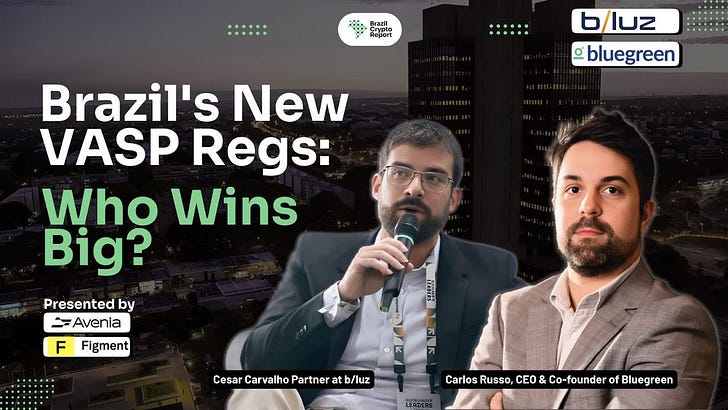Olá pessoal!
I’m super excited to announce the soft launch of a new podcast series called Bits and Borders that explores frontier tech in frontier markets.
Why a new series? Crypto remains my first love, but it’s just a part of a broader story playing out globally. We have new technologies and human coordination systems being developed in real time alongside rapidly shifting power dynamics in the global geopolitical order.
Crypto is a piece of the puzzle, but the complete puzzle is much bigger. We’ll still keep focusing on Brazil, but I wanted to open up the design space to explore technologies beyond crypto in new markets beyond Latam. This Bits and Borders brand gives me the opportunity to do that. Feedback welcomed!
For this inaugural episode, we explore Prospera — which is a Special Economic Zone located on Roatan Island in Honduras. Prospera is home to probably the most bleeding edge experiment in tech and governance innovation happening anywhere in the world right now.
Tech names like Balaji Srinivasan, Brian Armstrong, Tim Draper and Brian Johnson have all supported the project in some capacity.
Our guest for this interview is Niklas Anzinger, CEO of Infinita — which can be thought of in crypto terms as a “Layer 2” operating on top of the Prospera economic zone. Infinita is advancing biotech and longevity research on the island, in addition to community building across multiple verticals. For example, it is hosting a month-long Crypto Cities Pop-Up during June.
We discuss the core theses of Prospera and Infinita, which is that new governance models can potentially unlock trillions in economic value by addressing the regulatory bottlenecks that have stalled innovation across multiple sectors.
Specifically, Infinita is demonstrating how competitive governance frameworks can accelerate development in highly regulated fields like biotechnology and healthcare.
Key Insights:
Regulatory Flexibility as Competitive Advantage: Prospera has implemented a system where businesses can select from proven international regulatory frameworks rather than operate under a one-size-fits-all monopolistic regulatory authority
Market-Driven Regulation: The model leverages mandatory liability insurance as a coordinating mechanism, creating market incentives for appropriate regulation without over-regulation that stifles innovation
"Stranded Technologies": Anzinger identifies numerous high-value technologies with enormous potential that remain "stranded" due to regulatory barriers, with nuclear energy serving as the archetypal example
Complementary Rather Than Competitive: This approach works alongside existing nation-states, offering a "win-win" model that attracts investment and development while providing regulatory optionality
Strategic Implications:
This model challenges traditional assumptions about regulation and development. For executives in highly regulated industries, these governance innovations represent potential pathways to accelerate R&D and commercialization timelines while maintaining appropriate safety standards.
The conversation illuminates how governance innovation may become the ultimate frontier for technological advancement, potentially unlocking tremendous value across multiple sectors by addressing the institutional bottlenecks that limit progress.
I really enjoyed this conversation with Niklas and I hope you do as well.
You can connect with him on Linkedin
-AWS










